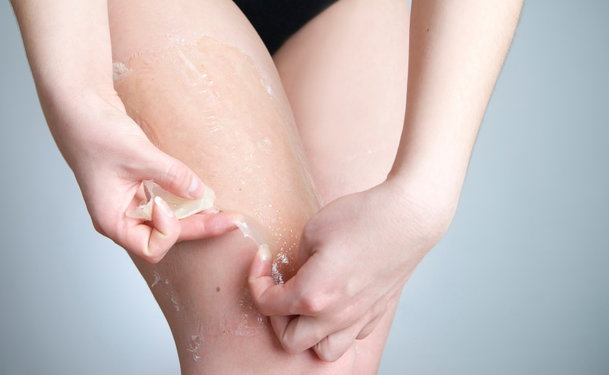Before laser therapy became the "gold standard" in the removal of unwanted tattoos, dermatologists relied on chemical peels and other methods in their effort to rid tattoos from clients. So now that laser therapy has been hailed as the most effective treatment in the removal of tattoos, are chemical peels still useful? Are they effective?
How chemical peels work
Chemical peels use chemical agents to resurface the skin. Once applied, the chemical peel penetrates the top layer of skin (or may reach deeper depending on the peel's strength) in what is called controlled injury. This causes the superficial layer of the skin to slough off. The body then uses it's natural defenses to produce new skin cells, leaving behind a smoother appearance. Peels are typically used to improve acne, acne scars, rough patches, age spots, liver spots, fine lines, wrinkles, freckles, and sun-damaged skin. But as mentioned, they too have been used over the years in an attempt to remove tattoos.
There are two different types of chemicals used for tattoo removal: Trichloroacetic acid (TCA) and phenol.
Trichloroacetic Acid (TCA)
TCA is a mild chemical peel that can fade or remove tattoos after several applications--it usually takes three months or more depending on the depth, size and color of the tattoo. Since some colors, such as red and yellow, are harder to remove than others, outcomes will vary.
You can purchase TCA online from various retailers and apply it yourself. However, the downside to TCA is that, because it is a self-applied product, it’s easy to use a product that’s too strong, use too much of the product, or to not wait long enough between applications – all of which can cause skin discoloration, allergic reaction and scarring.
Phenol
Phenol penetrates more deeply than TCA and removes tattoo ink much more quickly and effectively. Because phenol is a much stronger product, there’s a greater risk of scarring and loss of pigmentation. For this reason, phenol must be applied by a professional in a clinical setting. There is also a greater risk of pain and irritation from this process.
Are chemical peels effective in the removal of tattoos?
Chemical peels typically affect the top layer of your skin, but can partially reach the middle layer, where ink pigment mostly resides. Because peels reach some of the middle layer, a single application can remove a small amount of tattoo ink. So, at best, a chemical peel--no matter its strength--will allow the tattoo to fade, making this method not very effective in the removal of tattoos.
Still, some patients choose to undergo chemical peel treatment to help fade their tattoos before going in for laser tattoo removal treatments. This may reduce the cost of laser therapy, as fewer sessions may be required, and with fewer sessions, patients endure less pain than they would if they underwent more treatments.
Considerations
Before using TCA, you should consult with a specialist in your area to discuss proper application and to understand how the chemical agent may affect your skin. These considerations should also be made when choosing to use phenol.


